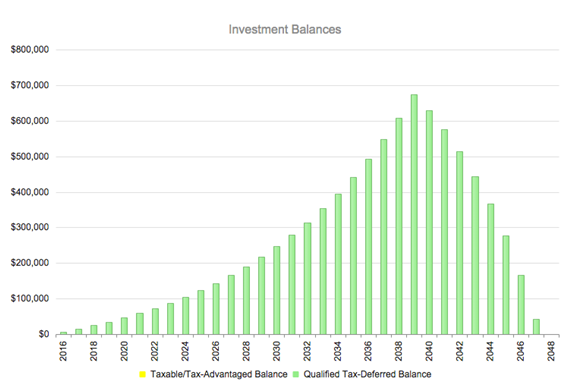Key Points
- It seems like a dream to many to retire early. But you can do it.
- Saving a bit more money, and consistently, will get you there sooner than you might think.
- Almost everybody could retire earlier if they just reduce those pesky fund fees.
You may have read stories about people who have retired early. There really is no magic to it. Lots of articles, lots of books, entire careers devoted to helping other people end their careers early, but no magic.
We have written our own related early-retirement pieces too, putting together case studies such as "Can You Retire Before Age 60?" and "Can I Retire At 55?"
We won't get into such details this time (though if you are interested in case studies, be sure to peruse our other blog entries). Here are the very basics of planning for early retirement, especially for those early in their careers.
Planning For Early Retirement
Like in that Christmas carol, it has been said many times and many ways: To make early retirement happen, the first step is to live beneath, not beyond, your means. There is nothing novel about this concept. Some important examples include:
-Cheap rent, cheap restaurants, cheap everything. It's very tempting to live the dream when you first start getting paid, but being frugal early will allow you to live a bigger, better dream later.
-Do not finance the purchase of anything besides education or, eventually, a home.
-Yes, that includes car loans. Only buy a car you can afford to pay for in cash. If you really must have an expensive one, save up for it.
-Never carry a credit card balance. That great deal you got on a pair of shoes becomes a lot less of a great deal if you're paying 18% interest on it because you're only making your minimum monthly credit card payments. Nothing effectively erodes wealth like high-interest debt.
We could go on with examples, but you get the idea. Of course you can and should splurge now and then, but not if it means going into credit card debt to do so. Get into these habits early in life, and you won't want to get out of them later in life. (Finally, some habits that are positive!)
Fund Fees & Strategies
You may not be all that interested in learning about investing, and that's mostly OK. In fact, a lot of people learn just enough to be dangerous and can do their portfolios real damage, watching a little too much CNBC and indulging in day-trading or Jim Cramer's latest hot stock picks.
Never mind all that. If you decide you don't want to learn about the stock market, you can just set it and forget it. But you absolutely must take that 'set it' step, and not put it off.
We're talking mostly here about regular contributions to retirement plans, like 401(k)s.
Your employer might present you with a long list of mutual funds to choose from. It might seem daunting, but it doesn't need to be. You can ignore most of those funds.
-Look for funds with "index" in the name. Index funds try to mimic certain stock market indexes (like the S&P 500) and generally outperform most other funds over the long term, partially because their fees are lower. If your plan offers a NASDAQ index fund or an Emerging Markets index fund, it will probably make sense to put some money into them.
-Look for target date funds. These funds will often have "target date," "retirement," or "freedom" in the name, or something similar. Mutual fund companies have different names for them, but the concept of target date funds is this: The fund company will manage the investments in the fund based on your target retirement date. Say you are planning to retire in 2040 (early, we hope!). Right now, in 2016, the fund company will mostly invest in aggressive stuff--emerging markets, growth stocks, and so on. As you get closer to 2040, the fund company will invest your money more conservatively. If your 401(k) plan offers target date funds, you've got it easy. You need not look beyond the fund with the target date closest to the year you expect to retire. You can just pick that single fund for all of your contributions.
Contribute Early And Often
Market movements work in your favor as a younger investor. A retiree can't do what you can do, which is to invest in the great growth companies and fast-growing markets of the world. There will be more ups and downs with such investments, so you may not want to look too closely at your 401(k) statements during down markets, but over longer periods, you'll do better than if you were to invest conservatively.
It's possible your 401(k) won't have any index funds or target date funds in it. Don't sweat the choices too much; the main thing is to contribute, contribute, contribute. We get into more details about contributing to and eventually maxing out contributions to 401(k) plans in this article. But if you don't click through to that article, here's the upshot: Invested aggressively, a $15-per-day contribution to a 401(k) plan over 24 years can end up being worth $675,000.

May Fortune Smile Upon You
We don't want to downplay the effect of good fortune on the ability to retire early. Good health, little or no college debt, an unexpected inheritance, a career with steadily increasing income, and many other factors can have a very positive effect on your ability to retire early. But a whole lot of it really is in your control.
Are you on the path to early retirement? The WealthTrace Financial & Retirement Planner can help you find out. Start a 14-day free trial now.